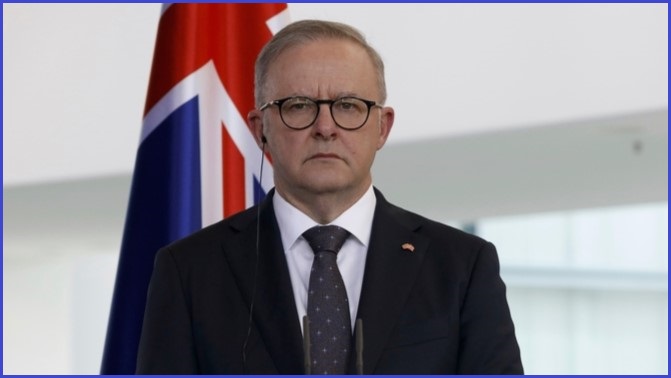Coalition Parliamentarians had to be disciplined after heckling Minister for Communications Michelle Rowland as she called the national broadband network (NBN) “critical infrastructure” while introducing new legislation that would enshrine public ownership of the NBN in law.
The new National Broadband Network Companies Amendment (Commitment to Public Ownership) Bill 2024, which the government introduced to Parliament this week, “reinforces” the government’s December 2022 statement that it intends to “keep the NBN Co in public hands for the foreseeable future”, according to explanatory notes to the new legislation.
Changes to the National Broadband Network Companies Act 2011 would, the notes say, “remove existing legislative conditions which, if satisfied, enable privatisation of NBN Co” and add an explicit statement of Parliamentary intent “that the NBN continues to be operated by NBN Co, with NBN Co to be wholly owned by the Commonwealth.”
Coalition carve-up
Scott Morrison’s Coalition government had already declared one of those four conditions – which are contained in sections 47 to 75, and 77 to 85 – satisfied when it announced in late 2020 that the NBN was “built and fully operational” despite the fact that nearly four million premises were yet to be connected.
The Coalition’s eagerness to proceed with privatisation, Prime Minister Anthony Albanese told Parliament while introducing the new legislation, is part of the reason Labor had moved to “safeguard the future of the NBN, making sure it can’t be privatised, sold off, or hollowed out.”
“There has never been a public service or asset that the Liberal Party didn’t want to carve up and sell off,” he added. “That is what they do.”
The financial, political, and economic fallout from the Coalition’s expensive and problematic change of strategic direction in 2013 – when then Prime Minister Tony Abbott formed government after earlier enlisting Communications Minister Malcolm Turnbull to “demolish” the all-fibre NBN that Labor initially proposed in 2009 and now aims to complete with $2.4 billion in new funding – remains a sore point with the now Opposition, which heckled both Rowland and Albanese as they spoke during Question Time.
House Speaker Milton Dick criticised “everyone on the [Opposition] front bench… just completely yelling”, singling out Member for Barker Tony Pasin and Member for O’Connor Rick Wilson as “completely disrespectful” and ordering Pasin to apologise for creating a “wall of noise” during Rowland’s speech.
“Labor founded the NBN to provide fast, reliable and affordable broadband to all Australians and we are delivering on that vision,” Rowland said over the jeers, arguing that “only by keeping the NBN in public ownership can that vision continue to be delivered…. For the first time, work is progressing on time and on budget.”
No time to sell
The government’s removal of the Coalition’s legislated pre-privatisation milestones “forces a timely debate on the NBN’s future, and the role of privatisation in a sector that has undergone significant transformation” since the NBN was announced 15 years ago, telecommunications industry analyst Paul Budde opined in calling the new legislation “an important turning point for the NBN”.
With market changes over the past decade pushing the global telecommunications market to the point where “growth appears to be stalling” – and cost-cutting measures “becoming the only sustainable strategy for these companies as new technologies like 5G and planned 6G services failing to boost revenues as once expected – Budde highlighted the “dilemma” telecommunications companies face in justifying continued investment in new technologies “without substantial revenue growth to justify those investments.”
Even as Australia’s telecommunications industry struggles to improve the shortcomings of regional telecommunications services new data suggest that private-sector competition is indeed delivering service improvements in overseas markets.
Recent figures from Ookla showed that median download speeds in Mesa, Arizona had increased by 50 percent a year after Google expanded its GFiber service across the city – forcing other providers to compete with Google broadband services that run as fast as 20Gbps for $370 ($US250) per month, and deliver 1,200 percent faster uploads with 26 percent shorter latency.
Faster NBN
For its part, an optimistic NBN Co is unilaterally preparing for across-the-board speed increases in its own effort to boost revenues – but in the absence similar competitive pressures from other providers, Budde noted the “dilemma” NBN faces in balancing its investment in new technologies with its need to deliver financial figures more appealing than the $1.4 billion net loss the company recently reported.
Such persistent losses, amidst a climate of industry stagnation and cost-of-living limitations, mean “rushed privatisation of the NBN would be politically and financially fraught,” said Budde, who calls himself a “cautious supporter of privatisation… if managed under stringent oversight.”
“For the government, offloading the NBN at a time when the market is sluggish would likely mean accepting that they won’t fully recoup their investment,” he explained.
“A delay is likely the most sensible approach, providing time to assess market trends and make informed decisions about the NBN's future.”










